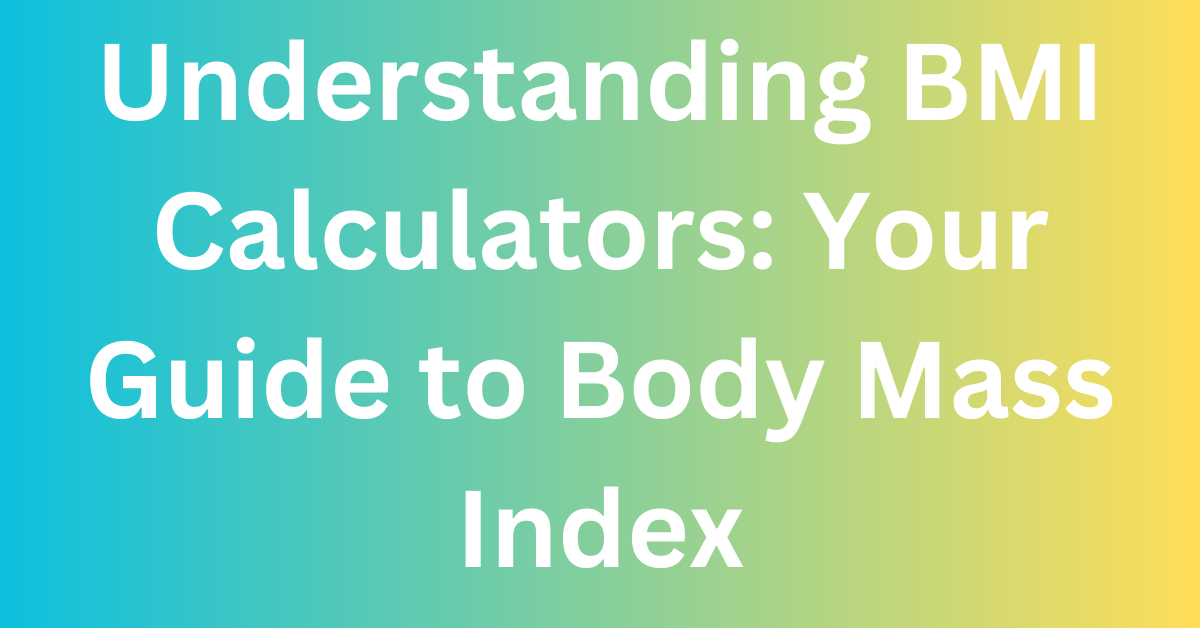
27
Understanding BMI Calculators: Your Guide to Body Mass Index
A BMI calculator is a simple tool used to assess body weight relative to height, providing insight into whether an individual is underweight, normal weight, overweight, or obese. This article explores what a BMI calculator is, how it works, its benefits, limitations, and how to use it effectively to monitor health. By understanding BMI, you can make informed decisions about your wellness journey.
Understanding BMI Calculators: Your Guide to Body Mass Index
Summary
A BMI calculator is a simple tool used to assess body weight relative to height, providing insight into whether an individual is underweight, normal weight, overweight, or obese. This article explores what a BMI calculator is, how it works, its benefits, limitations, and how to use it effectively to monitor health. By understanding BMI, you can make informed decisions about your wellness journey.
Keywords: BMI calculator, body mass index, weight assessment, health monitoring, BMI formula, healthy weight, fitness tool, obesity check, weight management, health calculator
What is a BMI Calculator?
A Body Mass Index (BMI) calculator is an online or manual tool that calculates a person’s body fat based on their weight and height. It’s widely used by healthcare professionals and individuals to gauge whether someone falls within a healthy weight range. The formula is straightforward:
BMI = weight (kg) / (height (m))²
For those using pounds and inches, the formula adjusts to:
BMI = (weight (lb) / (height (in))²) × 703
Why Use a BMI Calculator?
Using a BMI calculator offers several benefits:
- Quick Health Assessment: Provides a fast snapshot of weight status.
- Guides Fitness Goals: Helps set realistic weight loss or gain targets.
- Health Risk Indicator: Identifies potential risks associated with obesity or underweight conditions.
- User-Friendly: Requires only basic inputs (height and weight) for results.
How to Use a BMI Calculator
- Measure Your Weight: Use a reliable scale to get your weight in kilograms or pounds.
- Measure Your Height: Record your height in meters or inches accurately.
- Input Data: Enter your weight and height into an online BMI calculator or apply the formula manually.
- Interpret Results: Compare your BMI to standard categories (see table below).
BMI Categories Table
BMI Range
Category
Health Implications
Below 18.5 | Underweight | Risk of nutrient deficiencies, weakened immunity
18.5 - 24.9 | Normal Weight | Generally healthy, lower disease risk
25.0 - 29.9 | Overweight | Increased risk of heart disease, diabetes
30.0 and Above | Obesity | Higher risk of chronic diseases
Limitations of BMI Calculators
While BMI calculators are useful, they have limitations:
- Doesn’t Measure Body Fat Directly: BMI doesn’t distinguish between muscle, fat, or bone mass.
- Not Age or Gender-Specific: Standard BMI ranges may not apply to children, elderly, or athletes.
- Cultural Variations: Different populations may have varying health risks at the same BMI. For a more comprehensive health assessment, combine BMI with other metrics like waist circumference or body fat percentage.
Tips for Accurate BMI Results
- Use Consistent Units: Stick to either metric or imperial units to avoid errors.
- Measure at the Same Time: Weight can fluctuate during the day, so measure consistently (e.g., morning).
- Recalculate Periodically: Update your BMI as your weight or health goals change.
- Consult Professionals: Discuss results with a doctor for personalized advice.
FAQs About BMI Calculators
What is a healthy BMI range?
A BMI between 18.5 and 24.9 is considered healthy for most adults. However, individual health factors may vary.
Can BMI calculators be used for children?
Standard BMI calculators are not ideal for children. Pediatric BMI charts account for age and gender differences.
Is BMI a reliable indicator of health?
BMI is a useful starting point but doesn’t account for muscle mass or body composition. Combine it with other health metrics for accuracy.
How often should I check my BMI?
Checking BMI every few months is sufficient unless you’re actively managing weight changes.
Are online BMI calculators accurate?
Most online calculators are accurate if you input correct measurements. Double-check your inputs for reliability.
Conclusion
A BMI calculator is a valuable tool for assessing weight status and guiding health decisions. While it’s not a complete picture of health, it offers a quick and accessible way to monitor your body mass index. By understanding its benefits and limitations, you can use a BMI calculator as part of a broader approach to wellness. Always consult healthcare professionals for personalized advice, especially if your BMI indicates potential health risks.
Contact
Missing something?
Feel free to request missing tools or give some feedback using our contact form.
Contact Us